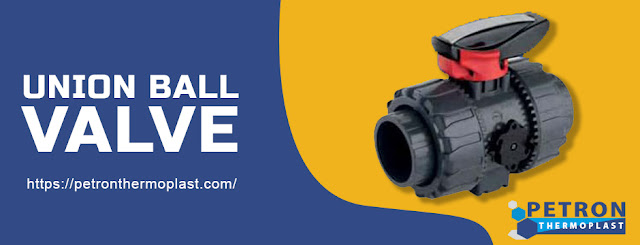Due to its resistance to interacting with most of these materials, PVDF fittings are good for handling a variety of chemical solvents and chemicals. Polyvinylidene fluoride pipes and fittings are some of the most utilized commercial and industrial PVDF pipes. Chemical etching of the conduit can improve the bond between various materials. If you put a PVDF coating on metal pipes, it is practical. PVDF Piping System is available to meet our cherished clients' needs fully.
1. What are the PVDF Industrial Pressure Piping's minimum and maximum use temperatures?
PVDF can be used continuously up to 300°F in supported conditions and
using a chemical compatibility chart. Most manufacturers rate it to 275°F in
chemicals that have little effect on PVDF. Although PVDF is not brittle in cold
temperatures until minus 40°F, most guidelines utilize minus 20°F as the lowest
limit if the system is subjected to any impact. Compared to PVDF homopolymers,
flexible PVDF copolymers often perform better at extremely low temperatures
while they can withstand cold weather.
2. Which chemicals most frequently damage less expensive materials and are handled by PVDF?
PVDF piping is frequently used to transport hot solutions of chlorine,
methyl chloroform, hydrochloric acid, salt water, chlorobenzene, sodium
hypochlorite (pH 12), sugars, sulfuric acid (97.5% and less), chlorinated
salts, phosphoric acid, hydrofluoric acid, metallic chlorides, acid mixtures,
bromine, hydrobromic acid, bromobenzene, chlorinated salts, iodine, salty.
3. Can steam be used to clean PVDF piping?
Studies have shown that PVDF piping has the same qualities as a control
sample after more than 50 steam cycles at 260°F. PVDF piping is frequently
exposed to low-pressure steam in bio-pharma applications.
4. What PVDF pipe systems connecting techniques are easily accessible?
In most cases, fusion welding or mechanical joining are used to join
PVDF pipes. Many pipe manufacturers offer PVDF systems in socket fusion, butt
fusion, beadless butt-fusion (BCF/SIB), infrared fusion, electrofusion,
sanitary mechanical, flanged mechanical, threaded mechanical, forced
mechanical, plastic-lined steel flanged, fiberglass reinforced flanged, and
threaded configurations.
5. What regulatory listings for water and food are available for PVDF?
NSF International lists specific grades of PVDF and PVDF copolymers that
comply with NSF/ANSI 51 (hot food contact) and NSF/ANSI 61. (hot potable
water). Some grades pass USP Class 6 testing. Some grades pass the Sanitary 3A
test. For repeated use with food contact, certain grades comply with FDA Title
21 CFR 177.2510 and CFR 177.2600. Certain grades meet Kosher certification
requirements. There might be additional listings; therefore, it's best to ask
the PVDF producers for guidance.
6. Is it possible to expose PVDF pipe to nuclear radiation?
Government laboratories have exposed PVDF to radiation up to 1000
mega-rads. The use of PVDF in nuclear reclamation plants is well documented.
7. How sunlight resistant is PVDF?
PVDF is extremely sun-resistant. It is frequently used in outdoor wiring
and pipes. Long-life paint finishes for tall structures and airports, and
protective films for solar panels with a 40-year lifespan. Test panels from
Florida that have been exposed for more than 40 years show minimal
deterioration.
PETRON THERMOPLAST is India's leading pipe manufacturer and consultant for thermoplastic industrial engineering products. It offers industrial turnkey supply & installation, fabrication, and supply of all thermoplastic industrial piping systems, including CPVC, UPVC, PVDF fittings, PPH, HDPE, and ABS. In chemical and wastewater treatment facilities. Thermoplastic chemical fluid and wastewater management systems are primarily employed in industrial and public infrastructure applications.

.jpg)




No comments:
Post a Comment